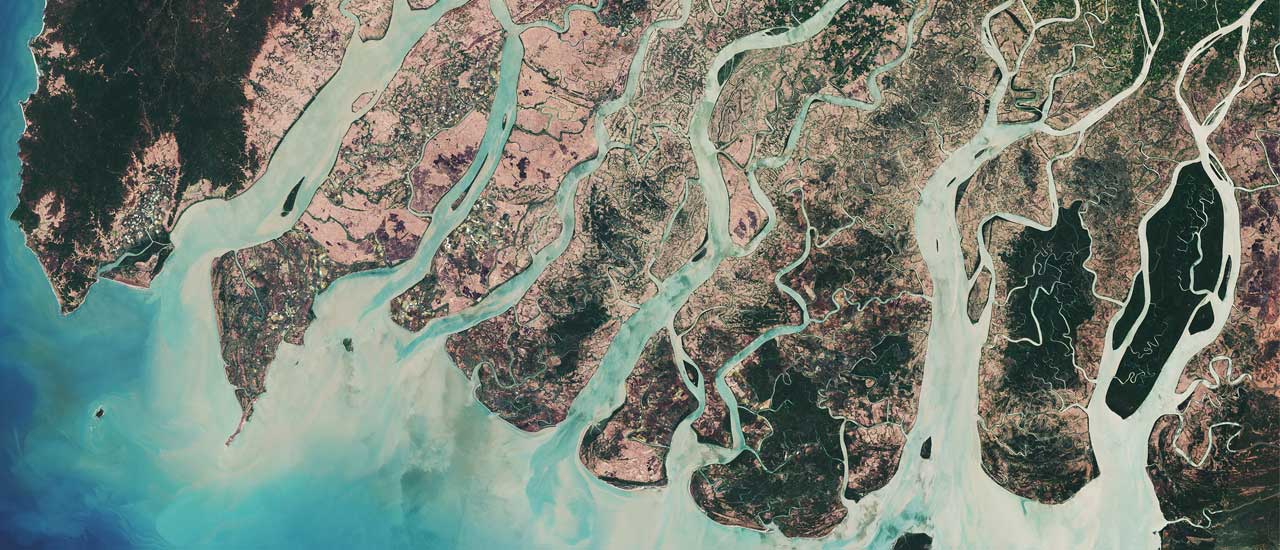GEOmedia 3 2017 Image of the week by ESA
The Sentinel-2A satellite takes us over the peninsulas and islands of the Irrawaddy Delta in Myanmar.
With a length of over 2200 km, the Irrawaddy River is the country's largest, flowing north-to-south before fanning out into the delta and emptying into the Andaman Sea.
Evident by the brown colour of the rivers and streams, sediments carried by the water are deposited in the delta. These deposits make the area very fertile, and the accumulation of deposits over time causes the coastline to advance.
Owing to the rich soils, the region is the country’s largest rice producer. This image was captured in March after the harvesting season but before the planting, so bare ground appears beige.
Green areas show dense mangrove forests, especially the Mein-ma-hla Kyun Wildlife Sanctuary in the lower right, known for its saltwater crocodiles. Even though this area is protected, some villagers living on the banks nearby sneak into the sanctuary and chop down trees for wood, degrading the forest.
Wood collection, rice farming and fishing – these and other human activities have damaged the delta’s mangroves over the years. When Cyclone Nargis hit in 2008, the remaining mangrove forests were not enough to act as a natural buffer against the storm surge, and resulted in an extensive loss of life.
This image combines two acquisitions by the Copernicus Sentinel-2A satellite in March 2017.
(Fonte: ESA - Image of the week: "Irrawaddy Delta". Traduzione: Gianluca Pititto su rivistageomedia.it)












